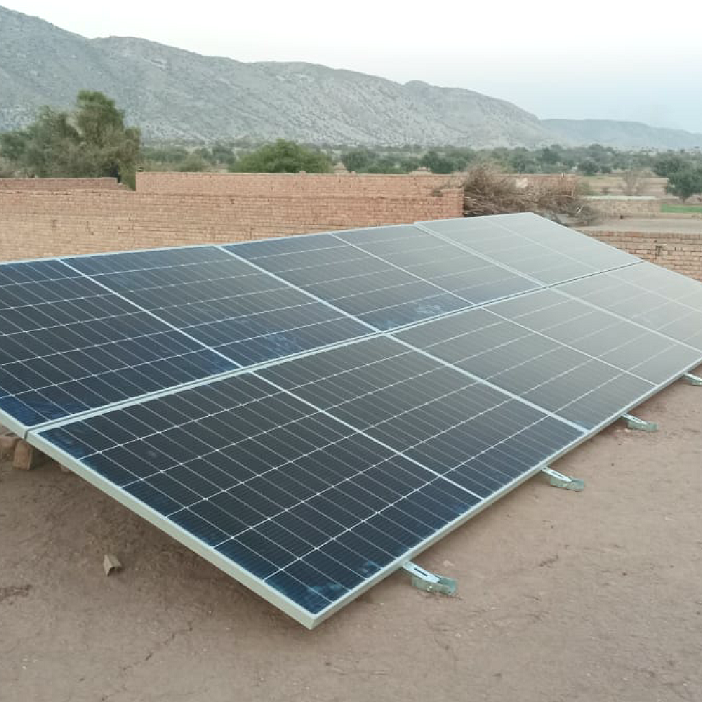Esak Khumari is a village located on the Thal Lachi Road, 50km from the Karak city. What’s special about this village is that there has been no electricity connection in any house for the last six years but electricity is available round the clock. Now nobody here complains about frequent outages.
The village is situated in tehsil Banda Daud Shah of district Karak district has a population of about 12,000 people. Most of its male residents are farmers or work abroad.
One of the residents, Muhammad Waris says that some time ago, the villagers were upset about electricity bills of thousands of rupees despite 20 hours of outages.
“Despite having only a few lights and two fans at my house that were the only electricity-consuming appliances, my bill had an extra two to three hundred units added to it. The reason was the lack of a meter reader in our village. Wapda officials included the units themselves while sitting 50km away in tehsil headquarters of Lachi.”
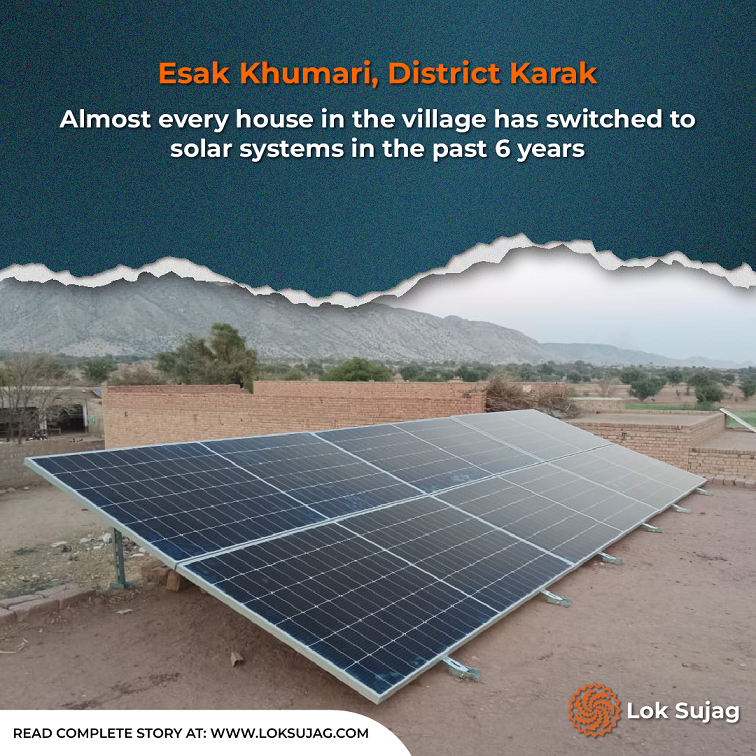
Waris complains that said that outages duration extends to more than 20 hours in summers.
Protests and shift to solar energy
The villagers held protests against the outages and inflated billing but no one paid them heed.
“At the end of June 2018, Wapda cut off the electricity supply to the entire village as no one paid the bills. People had no choice except to look for an alternative to Wapda electricity. Hence, every villager installed a solar system at their house according to their convenience. A one-time cost of solar installation saves from the trouble of outages and high electricity bills,” says Waris.
As many as 980 out of 1,033 houses in Esak Khumari had electricity connections.
Muhammad Qasim has been installing solar systems in Esak Khumari for the past three years. Speaking to Lok Sujag, he says that only he has shifted 350 homes to solar energy systems.
He says the minimum cost of a solar energy system is Rs300,000 while the maximum is Rs1m. “I have installed large and small solar plants worth Rs100m”.
Qasim says that poor families install two solar panels with two batteries, which costs up to Rs80,000.
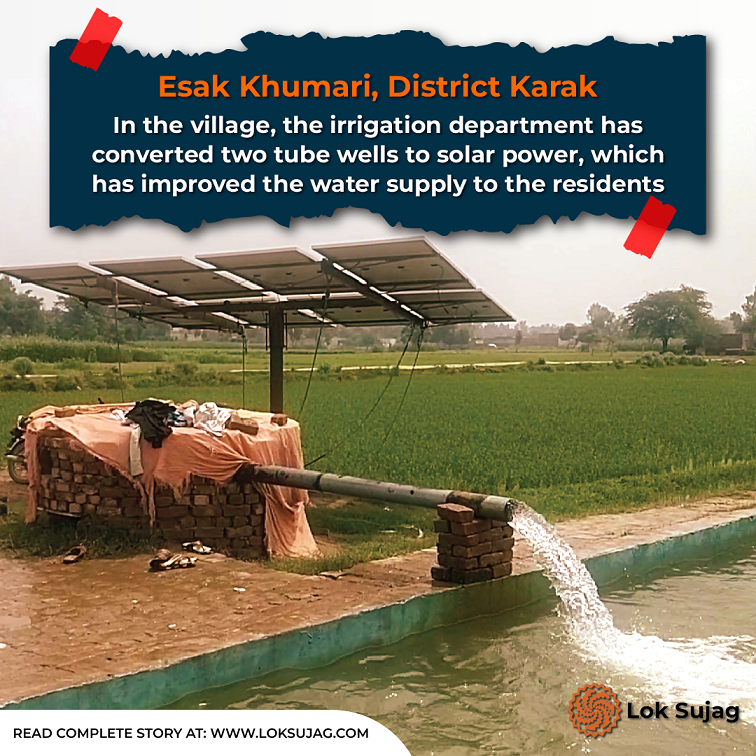
“It runs two or three fans and four to five bulbs. However, it requires a large system to run an AC, refrigerators or machines that costs more.”
Imran has recently switched his house entirely to solar energy. Speaking to Lok Sujag, he says he installed two solar panels when the electricity supply to the village was cut off and they power one light and two fans.
“I did not have enough money to convert the entire house to a solar system back then. This caused many problems for the women of the house as they had to fetch water from a distance.”
Imran explains that later he moved to Qatar where he raised enough money and shifted the entire house to solar power.
“Now we have a water motor and a fridge in our house and we don't have to worry about the electricity units going up or paying inflated bills.”
He adds that they have eight months of summer when there is enough sunlight for solar energy. Even in winters, once charged, the batteries provide electricity for two to three days.
Outstanding dues of Wapda
Esak Khamuri got rid of power outages and overbilling yet all the villagers owed Wapda Rs140m.
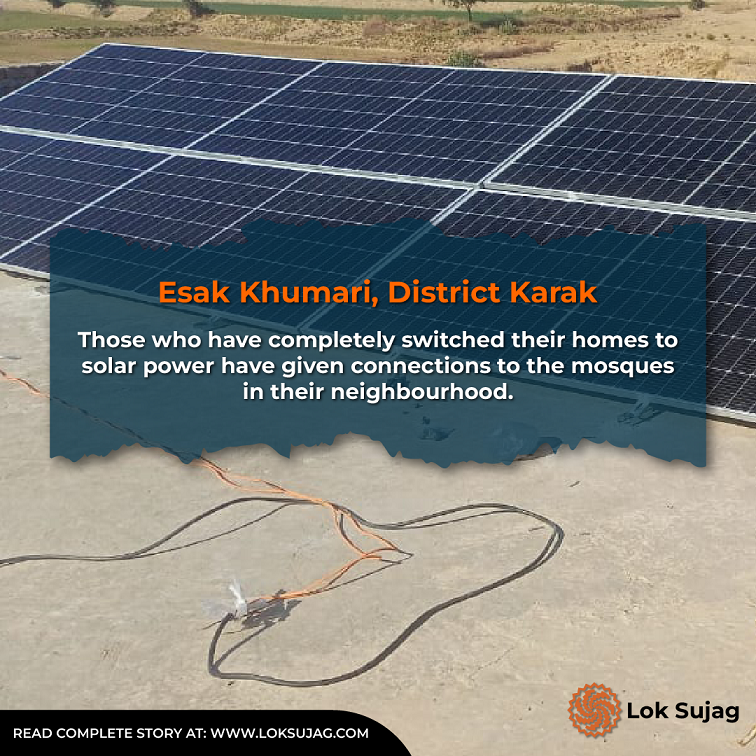
Ehsan Marwat, Wapda sub-division officer in Lachi, says the villagers have not paid their electricity bills since April 2018. The authority received no positive response from them despite sending multiple notices.
“Even a Jirga was held as per Pakhtun traditions. We consulted with the elders of the area but in vain, after which the Wapda authorities had no option but to cut off the electricity supply.”
According to him, the electricity supply to the whole village was cut off in June 2018 and the dues are still unpaid for the last six years.
He says electricity supply to some other defaulter villages was also cut off but it was restored after payments received from them.
No electricity in schools, hospitals and offices
Since Wapda disconnected the entire village from its system, schools, hospitals, mosques and other government and private offices in the village are operating without electricity.
Former chief justice of Peshawar High Court, Justice Lal Jan Khattak, also has roots in the village.
Last year, he retired from the Peshawar High Court and attempted to mediate between Wapda and the villagers but in vain.
Also Read
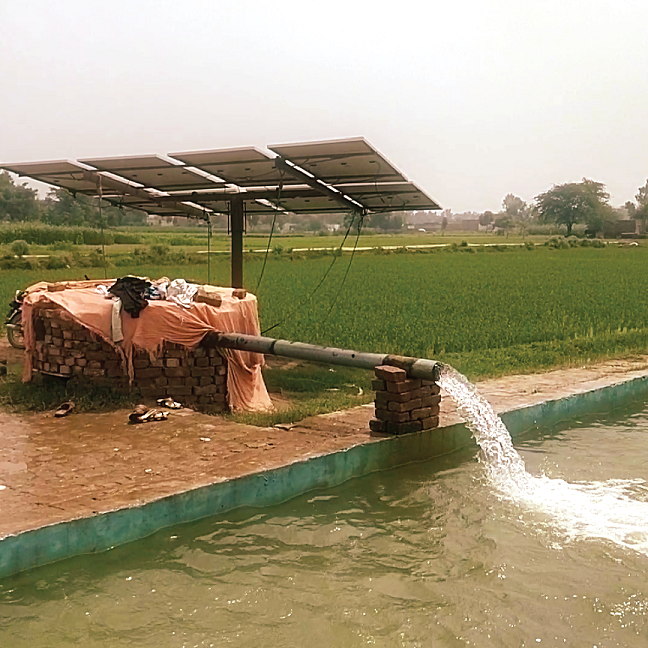
Why are farmers switching their tube wells to solar systems?
Speaking to Lok Sujag, he says the villagers are ready to pay the arrears in new bills in installments but Wapda is not ready to accept their demand.
“I have installed a solar system worth Rs2m in my house as per my requirements. However, there is a need for electricity restoration in the village as there are four government and one community schools for boys and girls that have around 3,000 students enrolled with them.”
Mr Khattak adds that due to a lack of electricity, children are compelled to study even in severe heat without fans and cold water.
He says that the education department has installed a solar system in the Government Girls Middle School but no other school has an electricity facility.
According to Muhammad Waris, the irrigation department has switched two of the three tube wells in the village to solar which supply water to the people of the area.
He says that people who have switched their entire houses to solar systems supply electricity to local mosques while banks and other private institutions are also running on generators or solar energy.
“However, it breaks our hearts to see the schoolchildren bearing the heat. Installation of solar systems by the government in schools will at least allow them to study peacefully,” says Waris.
Published on 11 Apr 2024
